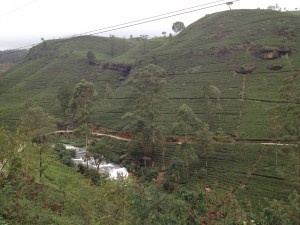Miklós originally joined the program for one month, going home on the 1st of July. In the end of June, he decided to stay for 10, and then another 15 days, extending his stay until the 25th of July. This double extension is a measure of the success of both Miklós and the program.
Miklós is a 21-years-old young adult. Since he is adult by law, a different set of rules apply to him compared to the underage participants: he didn’t want to attend therapy sessions. Pál Vaskuti respected his wish and they agreed that Miklós could avail himself of therapy as the service of the program – it’s up to him. Miklós then attended therapy several times during his stay. Miklós has negative self-evaluation; he is retractile, can become depressed and has suicidal thoughts. He hasn’t spoken to his father for years. His living space is impaired: he spends most of his time in front of his computer, only going out of the house if his friends invite him. He is using soft drugs both with friends and alone. He was quiet, retractile, hard to open up upon arrival.
His role was unclear to him when he arrived, since he was older than the rest of the mentored but younger than the mentors. During the time he spent among us he experienced that he is able to communicate with anybody, with no regards to the person’s age or personality. He has found a common ground with everybody: he played with the 12-year-old, went into serious conversations with the 15-17 year-olds and also had a good relationship with the mentors. To me, personally, it was a huge deal to watch him open up, giving the way to a well-balanced, good humored, likeable guy inside him, with openness in his eyes.
Last weekend, the larger part of our group went up to Nuwara Eliya, a 19. Century British city towards the heart of the island. Smaller portion of our group stayed home since they’ve already been to the city. Nuwara Eliya is situated above 2000 meters, in the mountains, and is solely surrounded by tea plantations. The citizens of the sity were originally the owners of the plantations and the buildings were all built European-style, hence the nickname ‘Little England’. The climate is way different from the rest of the island: it’s around 10 °C and rainy (much like England). It really feels like entering a different country. Nuwara Eliya has got golf courses, riding halls (they don’t keep horses on other parts of the island), swan-shaped paddle boat on the boating lake, and many other things that are absent in other cities. There’s a higher number of white skin-colored people here since the owners of the plantations are invariably white people, providing livelihood on the tea plantations to many Singhalese and Tamil people living around the city and the surrounding cities.
Once again we got to know a new face of Sri Lanka. Next week, we say good-bye to the three people who arrived in June, and then two new mentored and two mentors are coming on the 2nd of August. It’s going to be another eventful week.

